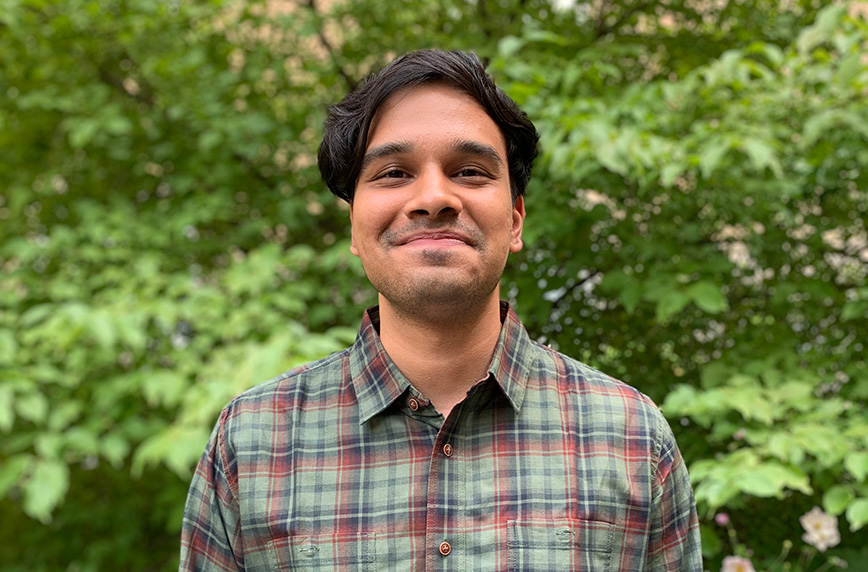Anirudh
Anirudh comes from Bengaluru, India. He achieved his bachelor's degree in Mechanical Engineering. In his free time, he enjoys a brisk run, a good book and a conversation about motorsport.

Why did you choose this master's programme at KTH?
Global warming and sustainability might be two of the most critical concerns geopolitically. I felt the need to be educated in a field adequate to mitigate these issues, which led me to recollect the subjects that allowed me to be a part of a change from the very first step. I chose Materials Science to learn about raw materials, their processing, production, and their use and recycling. Learning more about KTH and Sweden, one realises how deep the balance between humans and the environment is ingrained into society, making the university a clear choice for me.
What are the best aspects of your programme?
By far, my interactions with my professors have been the most insightful and could perhaps be the best aspect of my programme. The sharpest minds working together in harmony help one navigate their courses easily. Working on theoretical and realistic cases makes the coursework both enjoyable and insightful.
Have you chosen a specialisation track within the programme?
I have been following the Materials Design track. I chose it as I felt it was the ideal path covering aspects of all the department's three tracks, namely, the Industrial Materials Track, Materials Design & Sustainable Materials. Also, as the name suggests, I wanted to obtain proficiency in designing and developing materials, leading to my choice.
What are some of your favourite courses so far?
My favourite courses have been Advanced Course in Materials Design, Experimental Methods and Micro and Nanostructures. These courses have had some laboratory work and a fascinating learning process. Fun fact, when and if you take the Advanced Course in Materials Design, you will realise why the department of Materials Science has three sub-divisions, Unit of Properties, Unit of Structures & Unit of Processes.
How do studies at KTH differ from your previous studies?
The most significant difference for me has been the study period system, where a semester is split into two periods, and you study two to four subjects each. It was quite the getting used to, but it has been an amazing experience. Let's also not forget that one can eat as much food as they want while writing an examination!
What would you like to say to students thinking of choosing KTH for master's studies?
KTH is a lovely place for one to get educated. The cultural vibrance offered was one of the main reasons I chose to attend. The iron ore industry in Sweden is ever blooming with-it Materials Science. Embracing the cold and dark winters and the ever-bright summers might be challenging but an exuberant experience. Stockholm city is a worthwhile experience, and if you are up for it, a master's degree from KTH.

